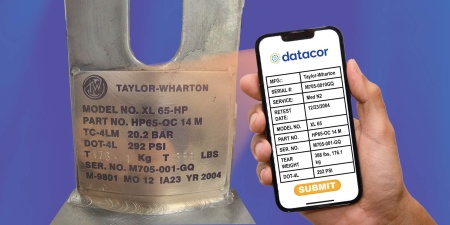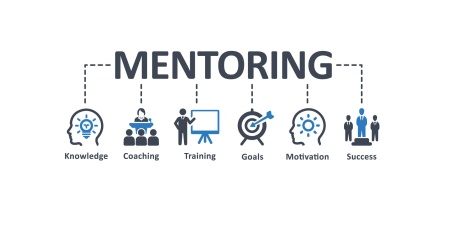A managers guide to building an “A” team
In the past few years there has been a shift in the way organizations are making buying decisions. The question sales leadership should be asking is, “Are we building a team that can handle these changes and thrive?”
“We Better Not Make Any Bad Buying Decisions.”
Companies are more risk averse than ever before. Whether it’s due to a bad experience with another vendor or simply because of a heightened fear of exposure, target prospects are looking for a much greater level of trust in the companies they engage with.
Additionally, this fear is driving them to mitigate risk by engaging as many other stakeholders as possible in an effort to share the decision-making responsibility. More than ever, from Purchasing Manager to President, individuals are seeking consensus amongst their fellow coworkers on every buying decision that is made.
“Show Me You Know Me.”
To address the above shift in buying behavior, salespeople need to be better at creating alignment with their prospects. It is not enough to simply demonstrate product knowledge, a command of delivery resources and promptly fulfilling requests for pricing. Successful selling requires the ability to act as a trusted partner that fully understands the prospect’s organization, their operational issues and how these issues impact their business.
“So Many Options, So Little Time for Salespeople.”
Another shift in buying behavior is a move toward devaluing the role of the salesperson. Due to a lack of time, and an overabundance of suppliers, prospects perceive the role of a salesperson as a “pre-sales” customer service person, there to handle any request for product info and pricing. Many salespeople enable this relationship, with their “drop-in, drop-off and drop-out approach”: dropping-in and asking to speak with the buyer, asking what info and pricing the prospect would like to see, and following up to find out if the prospect is ready to buy. If salespeople are going to make a shift in their selling behavior, they need to begin by taking a much more consultative and account-centric approach.
Buy vs. Build, Hire vs. Develop
If we are going to build sales teams that can adjust and thrive in this new environment, we need to optimize both our hiring practices and our coaching process. To improve in both areas, we need to first define the three basic categories of salespeople.
- Price Focused – transactional sellers.
- Product Focused – value sellers.
- Customer Focused – consultative sellers.
These categories are independent of age, experience, industry knowledge, and even past success – they are more a function of self-confidence and self-perception.
The Price-Driven Salesperson
This type of rep is the most difficult to train and coach. They are the salespeople who perceive their company, their offerings and themselves as a commodity. They marginalize the value of their solutions by quickly defaulting to price and rushing to present competitive quotes. The primary goal for the price-driven salesperson is to, “Save the client money on the products they are buying elsewhere.” Additionally, these price-driven reps tend to fill the CRM with quoted opportunities that inevitably fall apart due to the prospect disengaging and losing interest.
What to look for
As you recruit new salespeople, it is critical to weed out price-driven candidates by paying close attention to their lack of questions during the interview. These reps tend to drain company resources, giving away product and service at extremely low margins. The challenge with training price-driven reps is their inevitable default back to their comfort zone. Since their mindset is transactional and commodity-driven, attempts at changing their behavior usually fail.
The Value-Driven Salesperson
This is the most common type of salesperson we find, based on the approach most companies are taking to address the price-driven buying behavior. They are hiring salespeople with industry and technical expertise, as well as putting the energy into offering more product training for the existing team members.
The challenge for this type of salesperson is their inability to align solutions with the prospect’s deeper operational and business issues. They build the bridge from them to the customer with product knowledge, quickly responding to interest and need with demonstrations and presentations. These reps often fall short in their qualification and closing process, skipping the critical steps that drive a positive selling outcome.
Value-driven salespeople are especially vulnerable to long endless sales cycles, due to the focus on technical stakeholders who have the greatest amount of product interest but the least amount of influence. They do a great job selling the technical buyers but lack an understanding of how to help this internal champion get the proposal approved.
What to look for
When interviewing a product/value driven salesperson, it is critical to assess them for coachability, commitment to sales success and motivation to close business. The questions they ask during the sales interview offer more insight than the answers they give. Are they focused on your products or the sales opportunity? If the candidate actualizes as a “salesperson” with a growth mindset, they can be a great new addition to your team with the potential to evolve into the Consultative Selling category. The most important training component for this type of salesperson is helping them better navigate the buying process. Improving their ability to assess an individual buyer’s influence and negotiate access to other key stakeholders, will go a long way to optimizing their time management and selling skills.
The Consultative Customer-Focused Salesperson
A salesperson that falls into this category will demonstrate an authentic interest in understanding the prospect’s personal and organizational issues, concerns, and visions.
This type of salesperson is naturally curious, possessing the ability to dig deep into the customer’s world through pre-call planning, as well as engaging the prospect with challenging questions. Beyond these selling skills, a consultative salesperson will challenge the prospect’s way of thinking, engage all stakeholders involved in the decision process and create more collaborative relationships. Prospects are naturally drawn to these reps and are willing to give them more time, since they view the rep as a trusted partner and advisor.
What to look for
When interviewing this category of salesperson, it is important to filter for their prospecting and closing skills as well as their enjoyment of selling. A consultative salesperson is a natural problem solver and may be drawn to managing existing accounts vs. a new business development role. Though they are the most desirable reps to hire, it is critical to align the job responsibilities with their interest and motivation.
When training this type of salesperson, the key is familiarizing them with the different issues clients face and providing them with a process-driven approach to qualifying and closing. Consultative customer-focused reps are the most likely to leverage and adopt any sales training and coaching provided to them.
“Hire attitude and train for skill” – Herb Kelleher
Regardless of your company size, what you sell and how much competition you have, optimizing your sales organization starts by recruiting the right salespeople. While price-driven reps are often a company liability, with the proper training, value-driven and consultative salespeople will be an incredible asset.









